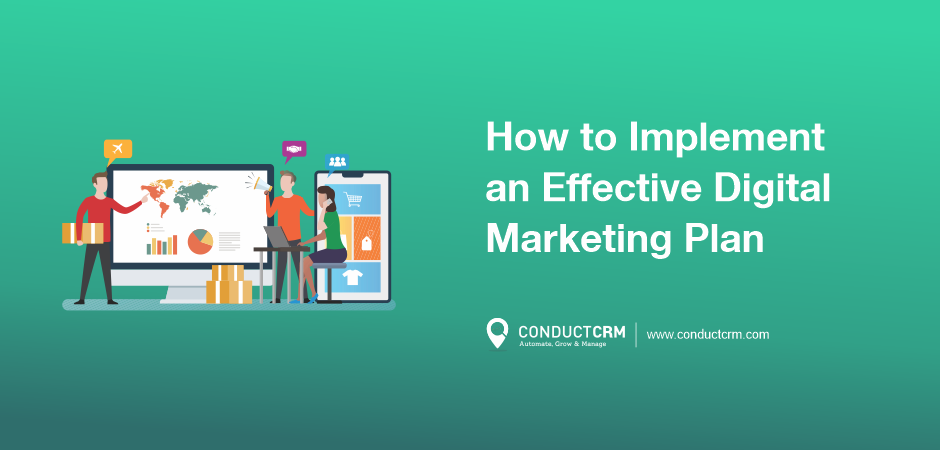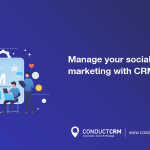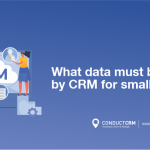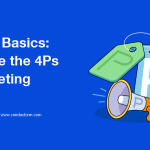How to Implement an Effective Digital Marketing Plan
Introduction
Having an exceptional Digital Marketing Plan is essential to achieving good results for any kind of business. Back in the days when the internet is just introduced to the world, businesses invest rarely in digital marketing. But not today! Today startup businesses spend around 11% of their revenue on digital marketing. (As per the research)
Nowadays businesses have dozens of options or platforms or channels to perform a digital marketing plan. Also, there were too many companies that work only in this area of expertise that help businesses to increase their customer on the internet.
You must act strategically when it comes to digital marketing to create your brand’s image on the internet and attract new leads and customers. To be effective you need a digital marketing plan that must include all the necessary information. Today in this blog, we will gonna see all the basics of the digital marketing plan.
 What do Businesses need in a Digital Marketing Plan?
What do Businesses need in a Digital Marketing Plan?
The following details are included in the digital marketing plan:
The Current Situation in the Market: Before implementing an effective digital marketing plan businesses need to know a clear situation of the market. What are the current trends in the market and what platform should be focused on business?
Companies or Businesses have to be a clear idea about marketing objectives: they have to plan what focus objects they are targeting before implementing of marketing strategy.
How to reach objectives: Businesses need to find a path how to reach a goal in a minimum short time. What platforms or channels you are going to use for the campaign?
And last how do you analyze your marketing campaign to turn potential users into customers?
Why do businesses need a Digital Marketing Plan?
To remain competitive in this digital era, businesses must have well-organized digital marketing plans. It helps them to reach their targeted audience and promote their brands.
One of the primary reasons businesses need a digital marketing plan is the potential to reach out to more customers on online platforms than offline. Nowadays with the digital revolution of smartphones, consumers are spending more time on the internet. A marketing plan enables businesses to reach customers on search engines, social media or via email and websites.
 Moreover, a digital marketing plan provides businesses with an opportunity to target their marketing effort effectively.
Moreover, a digital marketing plan provides businesses with an opportunity to target their marketing effort effectively.
A digital marketing plan allows businesses to track and measure their marketing process easily. In addition to monitoring key performance indicators(KPIs), analytics tools can also help businesses better understand website traffic, engagement rates, click-through rates, and conversions.
How to make an effective Digital Marketing Plan?
1) Starting Point
An effective digital marketing plan always starts with detailed research. Businesses should research before creating a marketing campaign. If the company’s one product is going to use in the campaign. Further, you should know the USP(Unique selling proposition) of the product. Moreover, Research your competitors in the market. and what are their plans?
In addition, Research about what people want from your company. What is their expectation, get reports with social media and online platforms.
Also, before running the campaign you should be aware of your website’s SEO aspects. like how your company’s website is performing.
2) Set Clear Objectives
Start by defining your digital marketing objectives. Use the famous technique SMART. Which stands for the following words.
S – Specific – Your objective must be to answer the Who, What, Where, When and Why.
M – Measurable – Measure your KPIs (Key Performance Index) that you are going to use and get information on how it going to be affected.
A – Achievable – Don’t set goals that are too easy to achieve.
R – Relevant – Your objective must be relevant to your niche.
T – Timely – Set a target of which time and date the marketing plan should end.
 3) Understand Your Target Audience
3) Understand Your Target Audience
Conduct thorough market research to identify your target audience’s demographics, preferences, behaviours, and online habits. This data will help you to perform your marketing strategies more effectively. This data also helps to engage with your audiences.
Moreover, It gives you overall indicators that you should focus. Ex. If your application or website is working more on some particular geographical area then you should consider it while creating a marketing campaign on the internet.
4) Choose the Right Digital Channels
Based on your research and targeted audience, you should select the digital platform that aligns with your goals and audience preferences. These may include search engine optimization (SEO), social media platforms, email marketing, content marketing, paid advertising, influencer marketing, and more.
5) Develop Compelling Content
Content is the backbone of digital marketing. Create valuable and relevant content that addresses your audience’s needs and pain points. This can include blog posts, articles, videos, infographics, and downloadable resources.
6) Allocating Budget
Developing a budget is another critical component of your digital marketing plan. Understanding your budget allows you to plan where your money will be allocated so you can get the best results and still be realistic. As you implement marketing actions, you can adjust your budget based on what’s working best as you go along.
7) Leverage Social Media
Establish a strong availability on relevant social media platforms where your target audience is active or working. Develop a content strategy that encourages engagement, utilizes hashtags effectively, and considers paid social media advertising to reach a wider audience.
8) Monitor and Analyze Results
Regularly track key metrics and analytics to evaluate the effectiveness of your digital marketing efforts. Use tools like Google Analytics to measure website traffic, conversions, engagement rates, and ROI. Adjust your strategies or plan based on the live insights gained from the data.
9) Stay Updated and Adapt
You need to keep up with evolving industry trends, emerging technologies, and consumer behaviour changes to ensure continued success in digital marketing.
10) Backup Plan
Monitor your marketing campaigns closely and track key performance metrics. If a campaign is not performing well, identify the underlying issues and make data-driven adjustments. Consider alternative strategies, channels, or messaging to pivot and optimize results. In addition, Maintain flexibility and adaptability in your plan to respond to changing market dynamics and customer feedback.
Conclusion
In conclusion, following the steps outlined in this guide, businesses can establish a strategic roadmap that aligns with their goals and resonates with their target audience.
Moreover, With a well-executed digital marketing plan in place, businesses can effectively engage with their target audience, build brand loyalty, and achieve their marketing objectives. By embracing the digital era and harnessing the opportunities it offers, businesses can position themselves for long-term growth and success in the competitive digital marketplace.
Nowadays In the market, CRM software helps to increase sales, customer engagement, and lead management. It works hand in hand with a digital marketing plan. Businesses can boost their productivity by implementing marketing plans in the CRM software.








